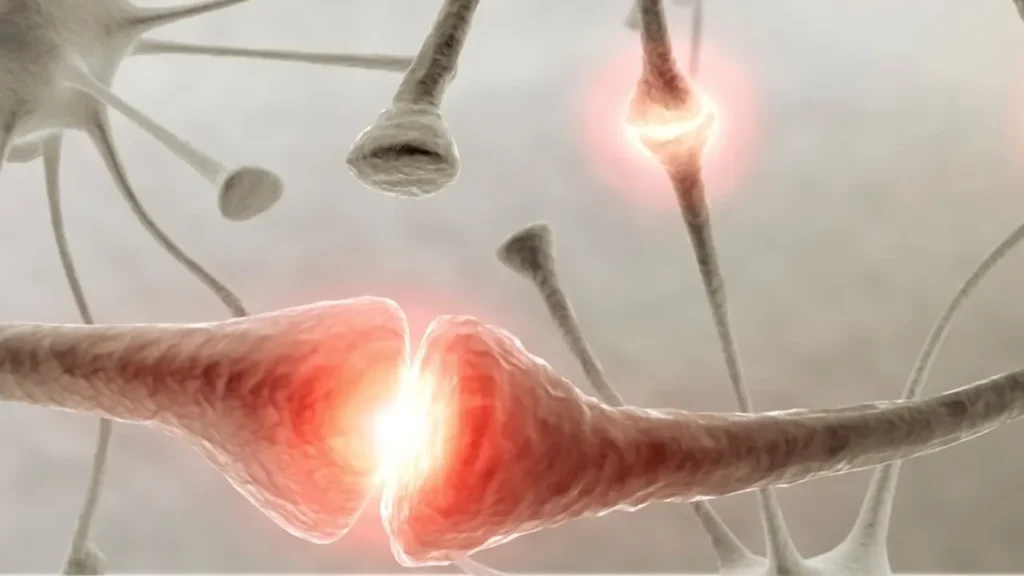Research into nootropic supplements—substances that may improve brain function—is becoming more and more popular among scientists and the general public. Squalamine is one of these substances that has drawn a lot of attention because of its unusual qualities and possible health advantages, particularly in relation to enhancing alertness, focus, and cognitive function. With an emphasis on squalamine’s chemical characteristics and physiological processes of action, this article explores the nature of squalamine, its health advantages, the best dosage, side effects, possible drug interactions, and the responsible use of this nootropic supplement.
You May Also Like:
CBD for Concentration: The Productivity Hack for Energy and Focus
Sunmed CBD vs. Partnered Process CBD: Finding the Best CBD for Sleep
Squalamine: Benefits, Dosage, Side Effects, Drug Interactions, and Other Important Information is an original (NootropicsPlanet) article.
Nature of Squalamine
First identified as a distinct aminosterol molecule, squalamine was extracted from the dogfish shark’s liver. It is well-known for having a unique chemical structure that gives it both lipophilic and hydrophilic qualities, enabling intricate interactions with cell membranes.
Due to its neuroprotective qualities, this natural substance has been thoroughly researched for its antibacterial capabilities and is currently being investigated for its possible advantages in improving cognitive abilities, such as alertness, focus, and cognition.
Health Benefits of Squalamine
Natural and possessing an unusual chemical structure, squalamine has drawn interest due to its wide array of health benefits, especially in the areas of antibacterial activity, possible anticancer effects, and its newly discovered involvement in neuroprotection and cognitive enhancement. A substance with significant therapeutic potential is revealed by a thorough investigation of these advantages.
Antimicrobial Properties
Significant antimicrobial activity against a broad range of microbiological pathogens, such as viruses, fungi, and bacteria, has been shown for squalamine. It works by rupturing the membranes of microorganisms, which allows the contents of the cell to seep out and eventually causes the cell to die. This mechanism of action presents a viable alternative in the fight against drug-resistant diseases since it is especially effective against strains of bacteria that are resistant to antibiotics.
Anticancer Potential
The anticancer effects of squalamine have also been studied. It has been discovered to prevent tumor cell proliferation in numerous cancer types, such as brain, lung, and breast malignancies. The capacity of squalamine to obstruct angiogenesis—the process by which tumors create their own blood supply to support growth—is thought to be responsible for its anticancer properties. Squalamine effectively starves tumors of the nutrients and oxygen required for growth by preventing angiogenesis, which slows the progression of cancers.
Neuroprotective Effects and Cognitive Enhancement
The neuroprotective properties of squalamine have important ramifications for mental wellness. It may help treat diseases like Parkinson’s and Alzheimer’s since research has demonstrated that it provides protection against neurodegenerative processes. Squalamine works in multiple ways to accomplish these goals: it lowers neuroinflammation, lessens oxidative stress, and guards against amyloid-beta toxicity, a condition that is characteristic of Alzheimer’s disease.
Squalamine may also improve cognitive abilities like attentiveness, concentration, and general intellect. The precise processes underlying squalamine’s beneficial effects on cognition are still being investigated, however it is thought that the compound’s interactions with neurotransmitter systems and capacity to enhance neuronal health and function play a role. Squalamine is thus a good option to improve cognitive function in healthy people and treat cognitive deterioration.
Cardiovascular Health
Squalamine has also shown promise in improving cardiovascular health. Its anti-angiogenic properties may help in reducing the formation of atherosclerotic plaques, thereby lowering the risk of heart disease. Additionally, squalamine’s potential effects on reducing inflammation could further contribute to cardiovascular health by preventing the chronic inflammation associated with heart disease.
Anti-Inflammatory and Antioxidant Effects
The anti-inflammatory and antioxidant properties of squalamine contribute broadly to its health benefits. By reducing inflammation and combating oxidative stress, squalamine can help protect against a variety of diseases where inflammation and oxidative damage play a role, including chronic diseases like diabetes and arthritis.
Eye Health
The possibility of squalamine to cure eye illnesses like retinal vein occlusion, especially those involving aberrant blood vessel formation, including age-related macular degeneration (AMD), has been studied. Its anti-angiogenic properties are advantageous in regulating the course of disorders marked by neovascularization, providing a possible treatment approach for the preservation of vision in those who are impacted.
Squalamine has numerous health advantages, including antibacterial and anticancer properties. It also has important impacts on neuroprotection, cardiovascular health, cognitive function, and other areas. Owing to its diverse range of actions, especially when considering its neuroprotective and cognitive-enhancing properties, this chemical is worth investigating further for possible therapeutic uses. With a wide range of possible therapeutic applications, squalamine is a fascinating natural chemical whose processes are still being investigated.

Chemistry of Squalamine
A naturally occurring aminosterol, squalamine was initially identified from dogfish shark (Squalus acanthias) tissues in the 1990s. Its structural features include an aminosugar and spermidine moiety connected to a sterol backbone.
Due to its special structure, squalamine has the ability to interact with biological membranes in a way that is both lipophilic and hydrophilic. Many of the biological effects of squalamine are caused by its ability to integrate into and disrupt cellular membranes due to its amphiphilic nature.
Physiological Mechanisms of Action of Squalamine
The physiological mechanisms of action of squalamine are complex and may involve disruption of microbial membrane integrity, regulation of signal transduction pathways, and possible effects on the central nervous system (CNS). Although squalamine was first investigated for its antibacterial qualities, more recent studies have looked into the effects of squalamine on the central nervous system, especially in relation to its ability to improve cognitive abilities like alertness, focus, and cognition.
Squalamine may influence cognitive function by modulating neurotransmitter systems, according to one theory. It might interfere with brain cell membranes to change the function of ion channels or receptors involved in neurotransmission, improving synaptic plasticity and neural connection. The precise mechanisms by which squalamine carries out these effects are still being studied, but in theory, these actions could enhance cognitive ability.

Optimal Dosage of Squalamine
It is difficult to ascertain the ideal squalamine dosage for improving cognitive function because there are few clinical studies that address this particular issue. The form of squalamine (e.g., injection, oral supplement), individual variances, and the particular cognitive effects needed might all affect the dosage. As with any supplement, it’s important to begin with a low dose to gauge tolerance and work with a healthcare provider to progressively increase as needed.
Side Effects of Squalamine
The use of squalamine, like any compound, can be associated with several side effects, though it is generally considered safe for most individuals. The side effects are relatively rare and may vary depending on dosage, the individual’s physiology, and the mode of administration. Commonly reported side effects include:
- Gastrointestinal disturbances such as nausea, vomiting, and diarrhea, which are among the most frequently reported adverse effects.
- Allergic reactions, which may manifest as rash, itching, or in severe cases, anaphylaxis, especially in individuals with a predisposition to allergies.
- Headaches and dizziness, possibly due to changes in blood pressure or the compound’s effects on the central nervous system.
- Fatigue, which may result from the body’s adaptation to the compound or its metabolic effects.

Potential Substance Interactions of Squalamine
Squalamine may interact with other substances, especially medications, which could either potentiate their effects or lead to adverse reactions. While specific interaction studies are limited, based on its pharmacological properties, potential interactions may include:
- Blood pressure medications: Given squalamine’s potential effects on blood pressure, it may interact with antihypertensive drugs, either enhancing or countering their effects.
- Immunosuppressants: As squalamine has been shown to have effects on the immune system, there could be interactions with medications that modulate immune responses, potentially leading to enhanced immunosuppression or reduced efficacy of the immunosuppressant.
- Anticoagulants: There’s a theoretical risk that squalamine could interact with blood thinners, affecting their potency and increasing the risk of bleeding.
Best Responsible Use of Squalamine
To ensure the best responsible use of squalamine, especially for cognitive enhancement, consider the following guidelines:
- Consultation with Healthcare Providers: Before starting squalamine, consult with a healthcare professional to ensure it is suitable for your health profile and to avoid potential interactions with other medications or health conditions.
- Start with Low Doses: Begin with the lowest possible dose to assess tolerance and gradually increase as needed under medical supervision.
- Monitor for Side Effects: Be vigilant for any adverse effects, including gastrointestinal symptoms, allergic reactions, or changes in blood pressure, and report these to a healthcare provider.
- Holistic Approach: Combine squalamine supplementation with a healthy lifestyle, incorporating balanced nutrition, regular physical activity, and adequate sleep to support overall cognitive health and well-being.
- Regular Review: Regularly review the use of squalamine with a healthcare provider to assess its efficacy and safety, making adjustments as necessary.
Adhering to these guidelines can help maximize the potential benefits of squalamine while minimizing risks, ensuring its responsible and effective use for cognitive enhancement.
Squalamine:
Conclusion
Squalamine is an increasingly promising compound with an extensive range of therapeutic benefits, including antimicrobial, anticancer, neuroprotective, and cognitive-enhancing effects, making it a highly notable substance for scientific consideration. The compound’s unique chemical structure and complex physiological mechanisms offer innovative applications to combating diseases and enhancing brain function, further enforcing the argument for the need for ongoing research into optimal dosages, potential side effects, and drug interactions.
While it shows immense promise in various health capacities, individuals considering squalamine should do so with abundant caution, starting with low doses and consulting healthcare providers to mitigate risks and ensure its responsible use. Ultimately, squalamine represents a fascinating frontier in the study of nootropic supplements and their potential to improve human health and cognitive abilities, warranting further investigation to fully gain its therapeutic potential.

References:
- Squalamine – Uses, Side Effects, and More. Retrieved from:https://www.webmd.com/vitamins/ai/ingredientmono-751/squalamine
- Squalamine as a broad-spectrum systemic antiviral agent with therapeutic potential. Retrieved from: https://www.ncbi.nlm.nih.gov/pmc/articles/PMC3179074/
- From Marine Metabolites to the Drugs of the Future: Squalamine, Trodusquemine, Their Steroid and Triterpene Analogues †. Retrieved from: https://www.ncbi.nlm.nih.gov/pmc/articles/PMC8834734/
Important Note: The information contained in this article is for general informational purposes only, and should not be construed as health or medical advice, nor is it intended to diagnose, prevent, treat, or cure any disease or health condition. Before embarking on any diet, fitness regimen, or program of nutritional supplementation, it is advisable to consult your healthcare professional in order to determine its safety and probable efficacy in terms of your individual state of health.
Regarding Nutritional Supplements Or Other Non-Prescription Health Products: If any nutritional supplements or other non-prescription health products are mentioned in the foregoing article, any claims or statements made about them have not been evaluated by the U.S. Food and Drug Administration, and such nutritional supplements or other health products are not intended to diagnose, treat, cure, or prevent any disease.


